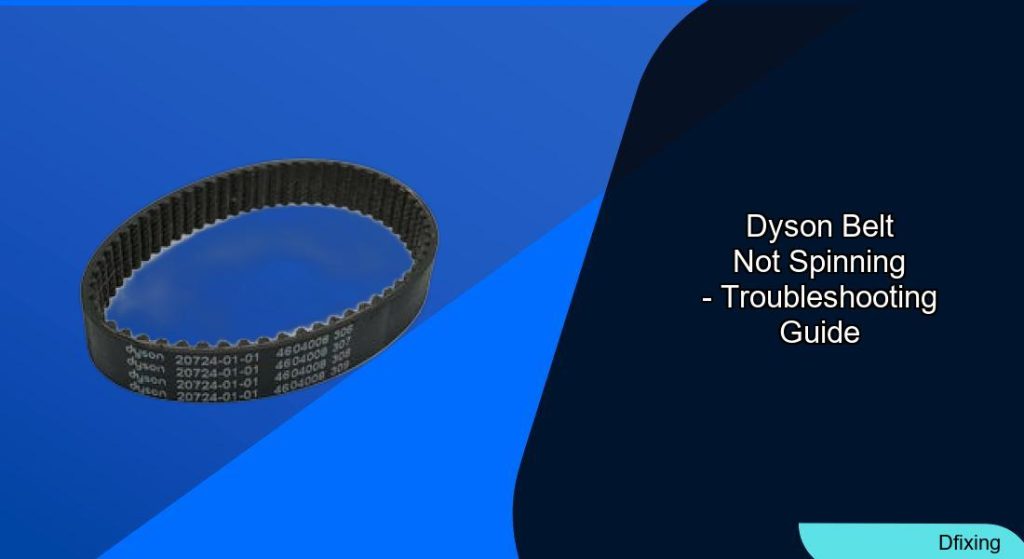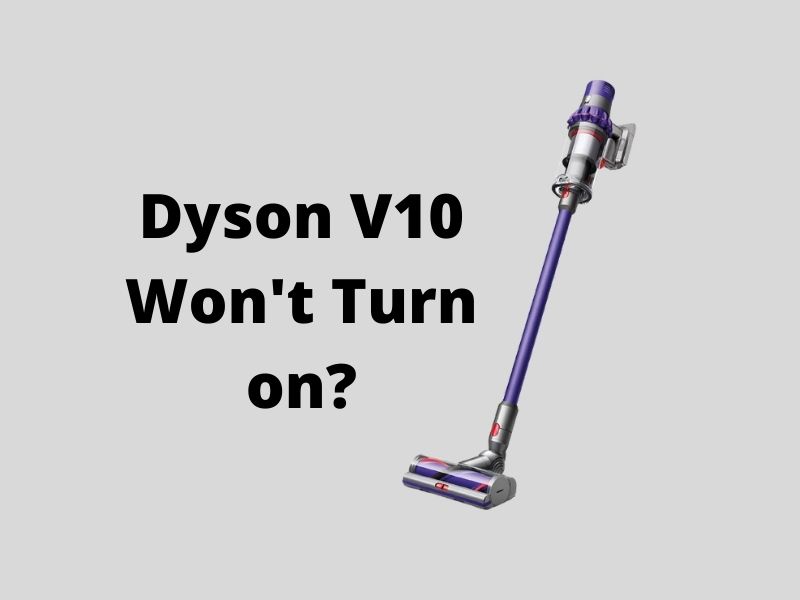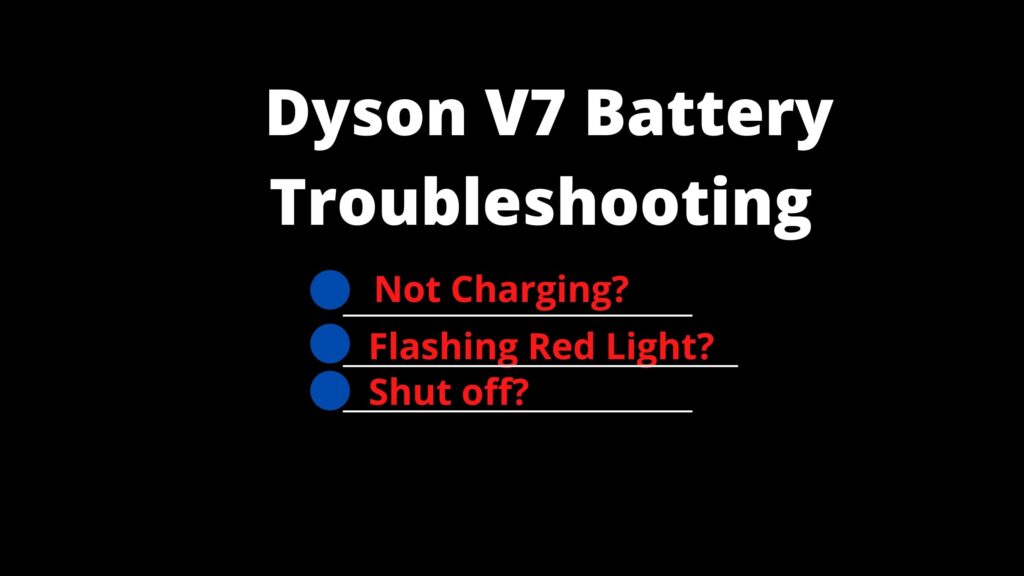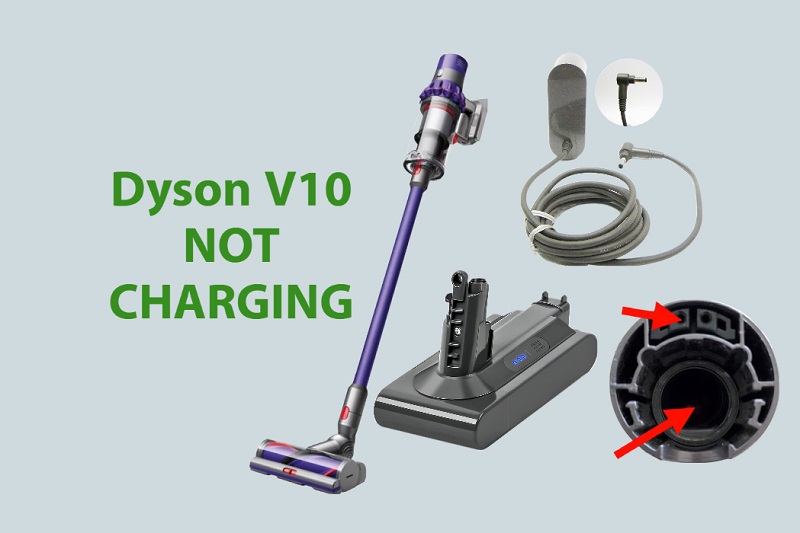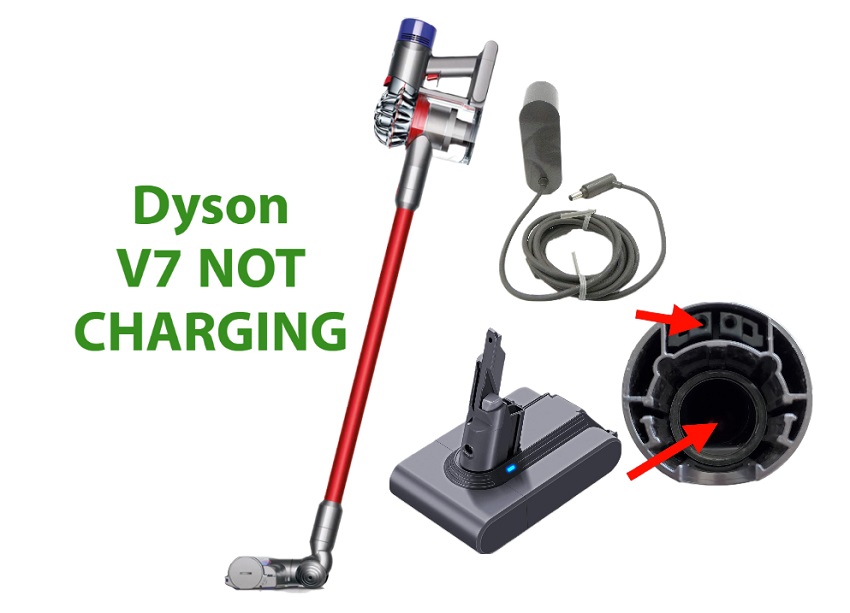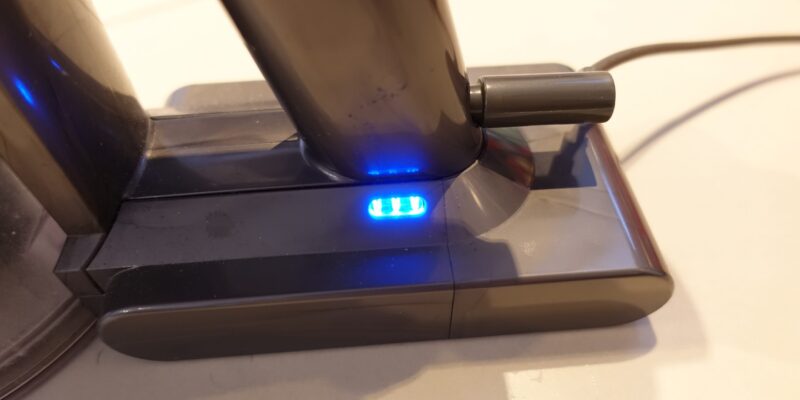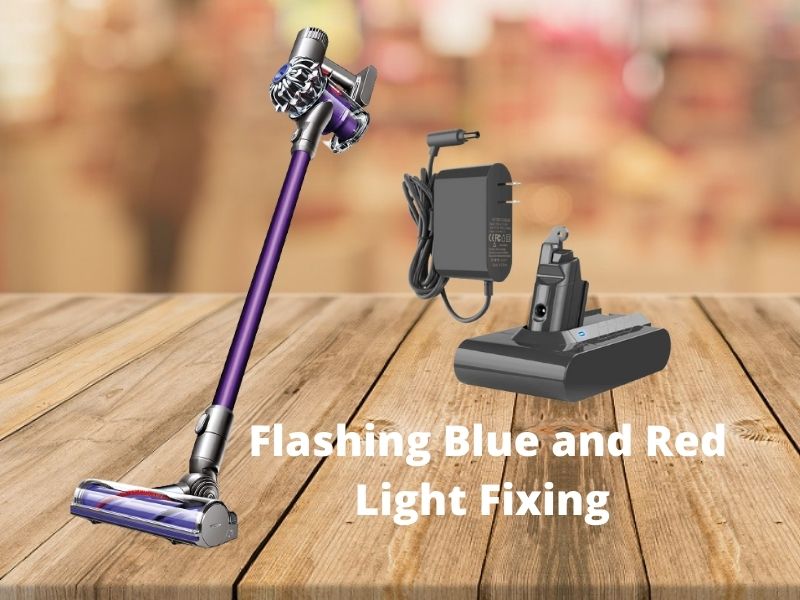A Dyson vacuum cleaner with a belt that refuses to spin can turn a simple cleaning task into a major headache. Whether the brush head stalls mid-use or the beater bar stops rotating entirely, these issues often stem from preventable or easily repairable causes. From clogged gears to damaged belts, understanding the root problem is the first step toward a solution. This article walks you through diagnosing and resolving common Dyson belt and brush bar malfunctions, ensuring your vacuum regains its peak performance quickly.
Affiliate disclosure: As an Amazon associate, We'll earn a commission for every successful order through our affiliate links in the article. However, you won’t be charged anything for this.
By exploring the most frequent culprits—like debris buildup, belt wear, or motor disconnections—and providing actionable fixes, this guide equips you with the knowledge to troubleshoot effectively. You’ll also discover preventive maintenance tips, model-specific insights, and essential tools to tackle repairs confidently. Let’s dive into the details.
Common Causes and Practical Solutions
When a Dyson belt or brush bar stops spinning, the issue often lies in one of these areas:
Dirty Electrical Contacts: Dust accumulation on motor contacts disrupts power flow. Clean them with a dry cloth or cotton swab.
Clogged Gear Mechanism: Hair or fibers the gears, causing them to seize. Remove the brush bar, clear debris with a screwdriver or tweezers, and test gear movement manually.
Physical Jamming: Hard objects or hair knots lock the roller brush. Disassemble the brush head to remove obstructions.
Worn or Broken Belt: A frayed or snapped belt fails to transfer motion. Replace it following your manual’s instructions for alignment and tension. For models with a beater bar, check both the motor and brush bar belts.
If the belt is worn or broken, it will need to be replaced to ensure proper function of the vacuum.

Official replacement for clutch and belts in multiple Dyson models
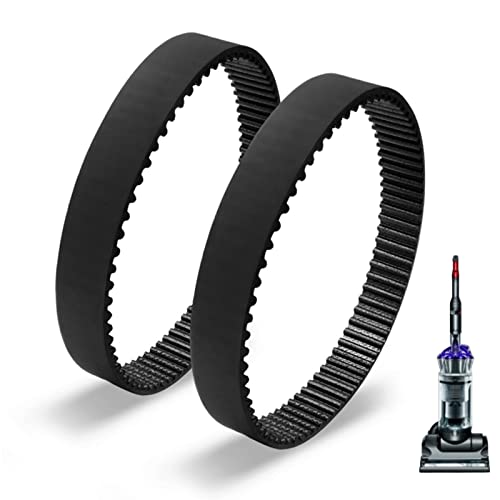
Affordable replacement for DC17 vacuum belts
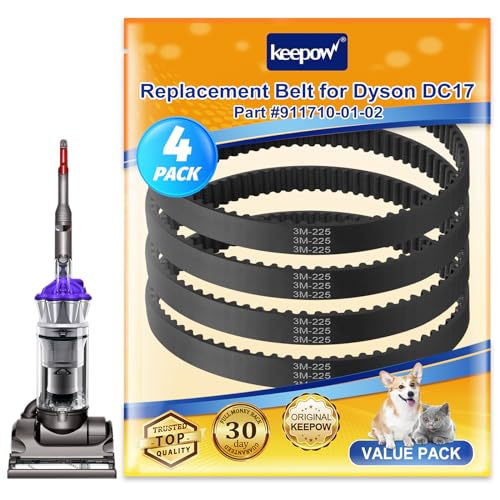
Bulk replacement option for DC17 vacuum belts

Cost-effective belts for multiple older Dyson models
- Motor or Drive Shaft Problems: A disconnected or damaged motor, or a loose drive shaft, prevents rotation. Ensure connections are secure and inspect for wear. For cordless models like the V6, lubricate the motor to compensate for low torque.
Step-by-Step Repair Guide
1. Unplug the Vacuum
Safety first: Disconnect the vacuum from power before starting repairs.
2. Remove the Brush Roll
- Locate the brush roll cover at the vacuum head’s base.
- Unscrew and remove the cover, then extract the brush roll and disconnect it from the drive shaft.
3. Inspect and Clean the Brush Roll
- Use needle-nose pliers to remove tangled hair or debris.
- Replace the brush roll if cracked or missing bristles.
If the brush roll is damaged, it’s best to replace it to maintain optimal cleaning performance.

Premium original equipment replacement for Dyson upright vacuums
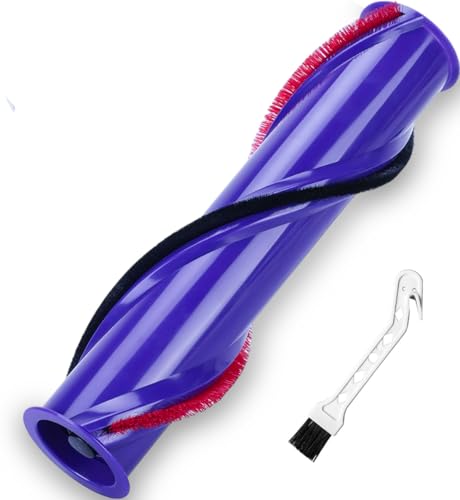
High-performance replacement for Dyson V8 Animal vacuums

Affordable replacement for older Dyson V6 models
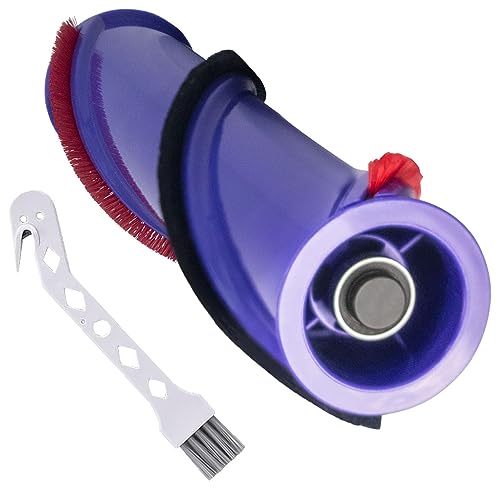
Effective alternative for Dyson V8 cordless vacuums
4. Check the Belt
- Locate the belt connecting the motor to the brush roll.
- Replace if worn, torn, or broken. For beater bar models, inspect both belts.
A worn, torn, or broken belt will prevent the brush roll from spinning. Replacing it is crucial for restoring functionality.

Durable replacement belts for Dyson DC17 series with extended lifespan

Universal replacement set for multiple Dyson upright models
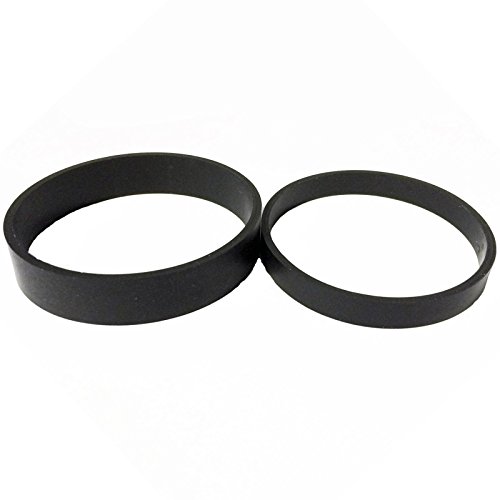
Premium dual-belt kit for clutch-equipped Dyson models
5. Examine Motor and Drive Shaft
- Ensure the motor is connected to the power source and drive shaft.
- Tighten or replace a damaged drive shaft.
6. Reassemble and Test
- Reinstall the brush roll and secure the cover.
- Plug in the vacuum and confirm the brush roll spins freely.
Additional Troubleshooting Tips for Persistent Issues

- Hidden Obstructions: Disassemble the vacuum head or hose to remove lodged debris.
- Red Reset Button: On models like the DC25, press the red reset button on the head to restart the brush bar.
- Filter Maintenance: Clean the dust filter thoroughly (even if it appears clean externally) and ensure it’s dry before reinserting.
- Electrical Connection Cleaning: For models like the DC59, use a Q-tip with rubbing alcohol to clean dust from motor-canister connections.
Preventive Maintenance for Dyson Belt Longevity
Regular upkeep prevents future breakdowns:
– Clean the Brush Roll: Remove debris after each use, especially after vacuuming hair or pet fur.
– Inspect Belt Wear: Check for cracks or stretching every few months and replace as needed.
– Avoid Overloading: Steer clear of vacuuming large debris that could jam the brush roll.
– Clutch Housing Care: For beater bar models, clean the clutch housing and ensure proper belt tension during reassembly.
Model-Specific Considerations for Dyson Belt Problems
Different models require tailored approaches:
– V6/V7/V8: Focus on cleaning electrical contacts and the 20W motor. Empty the dust bin regularly to avoid overloading.
If cleaning the electrical contacts doesn’t solve the issue, the motor itself might be failing, especially in older V6/V7/V8 models.

Official Dyson motorhead for V7 series machines
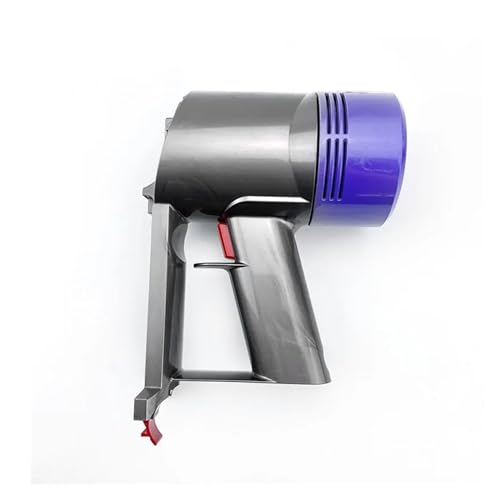
Affordable motor assembly for V6/V7/V8 models
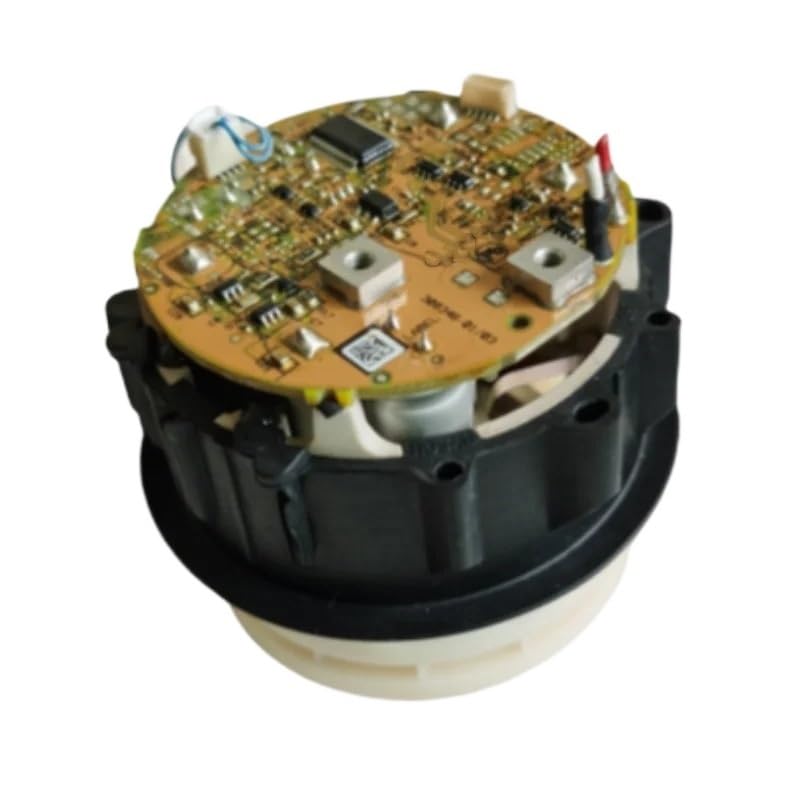
Smart motor control system for V7
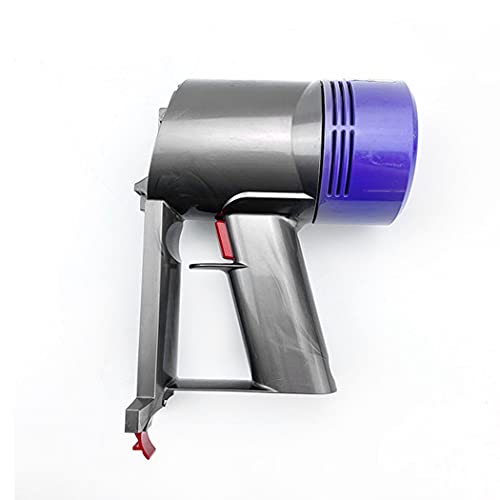
Complete engine body with filtration system
- DC25: Check for loose wiring between the brush bar relay and motor.
- DC14: Remove lint under end caps using a small screwdriver or nail file.
- Beater Bar Units: Prioritize clutch system maintenance, as these rely on dual belts connected to the motor.
Essential Tools for Dyson Belt Repairs
Gather these tools before starting:
– Screwdrivers (flathead, Phillips, Torx T8/T10/T15)
– Needle-nose pliers
– Replacement belt (original Dyson or compatible third-party)
– Q-tips and rubbing alcohol for cleaning contacts
– Lubricant like WD-40 for motor parts
– Safety gloves for protection during disassembly
Frequently Asked Questions (FAQ)
Why isn’t my Dyson belt spinning?
Common causes include debris buildup in gears, a broken belt, or motor disconnection. Follow the step-by-step guide to diagnose and fix the issue.
How often should I replace the Dyson belt?
Inspect the belt every 6–12 months or immediately if you notice cracks, stretching, or loss of tension.
Can I use third-party belts for my Dyson?
Yes, but ensure they match your model’s specifications for durability and performance.
Why does my Dyson brush bar stop spinning intermittently?
Intermittent issues often stem from loose wiring (e.g., DC25) or lint buildup under end caps (e.g., DC14).
Is it worth repairing a Dyson belt myself?
Yes, as DIY repairs cost significantly less than professional service. However, contact Dyson support if the motor is damaged.
Conclusion
A Dyson belt not spinning is a fixable problem with the right knowledge and tools. By addressing common causes—from clearing debris to replacing worn belts—you can restore your vacuum’s functionality without breaking the bank. Regular maintenance, such as cleaning electrical contacts and inspecting belts, prolongs your vacuum’s lifespan. For persistent issues, consult Dyson’s customer support or a professional technician. With these steps, your Dyson will be back to keeping your floors spotless in no time.

